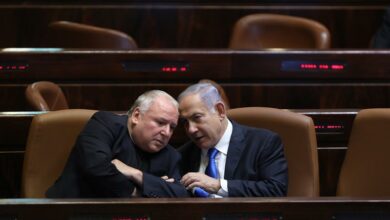Center-left bloc to choose nominee in wide-open Chile presidential contest

Santiago, Aug 20 (EFE).- The formal narrowed-down list of Chilean presidential hopefuls is nearly complete three days ahead of the candidate registration deadline, with the focus now on who will emerge as the standard-bearer of the center-left Constituent Unity (UC) alliance in November’s wide-open general election.
That coalition of traditional parties is the only large bloc that did not settle on a candidate through the official July primary process organized by the electoral authorities.
The UC will choose its candidate on Saturday via an informal selection process, with those registered with one of the coalition parties, as well as independent voters, eligible to participate.
The three candidates in the running are Christian Democrat Yasna Provoste, an indigenous woman and president of Chile’s Senate; the Socialist Party’s Paula Narvaez, who served as minister secretary general of government under two-time former President Michelle Bachelet and has her endorsement; and the president of the Radical Party and a former justice minister under Bachelet, Carlos Maldonado.
Chile’s center-left, competing under a variety of different banners, has alternated in power with the center-right in the 30 years since the end of Gen. Augusto Pinochet’s 1973-1990 right-wing military dictatorship.
But its influence has waned since its defeat in 2017 at the hands of the center-right Let’s Go Chile alliance led by outgoing President Sebastian Piñera, who is ineligible to run due to a constitutional ban on immediate re-election for heads of state.
Meanwhile, the Constitutional Court shook up the primary process with a ruling in recent hours that enables the leader of the left-wing Progressive Party, Marco Enriquez-Ominami, to register his candidacy prior to Monday’s deadline.
“They wanted to silence me and suspend the fight I’m leading outside the established political system. Today’s a good day for Chile and a good day for justice,” said Enriquez-Ominami, a three-time presidential candidate who in 2016 faced charges of irregular campaign financing that he maintains were politically motivated.
A new presidential bid by MEO, as he is popularly known, could wrest votes away from Narvaez, who said Thursday that the “splintering of the left has never helped win elections” and that the Progressive Party “will have to make decisions responsibly and take into account the country’s higher interests.”
Two political upstarts – 35-year-old Gabriel Boric, a former student leader and nominee of the left-wing Approve Dignity coalition, and 44-year-old Sebastian Sichel, a former president of Banco del Estado de Chile who represents Let’s Go Chile – have already booked their places on the Nov. 21 first-round ballot.
Boric and Sichel, the only major-coalition candidates born after Pinochet’s 1973 coup, beat out more established figures in what experts called a generational shift in Chilean politics.
The so-called List of the People – a diverse group formed to participate in the Constitutional Convention, a process to replace Chile’s Pinochet-era charter that was triggered by large-scale 2019 protests against social inequality – on Friday chose indigenous activist Diego Ancalao as their candidate.
That presidential hopeful, however, still must gather sufficient signatures before Monday’s deadline to get his name on the ballot.
On the opposite side of the political spectrum is right-wing populist Jose Antonio Kast of the Republican Party, who is expected to make his candidacy official on Sunday.
Around half of the Senate seats and all 155 lower-house seats also will be up for grabs in the Nov. 21 general election.
A presidential runoff will be held on Dec. 19 if no candidate receives a majority of the vote. EFE
mmm/mc





